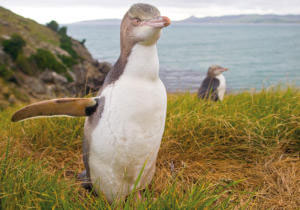As human life expectancy increases, so does the percentage of invasive and endangered birds and mammals, according to a new study by the University of California, Davis.
The study, published in the September issue of Ecology and Society, examined a combination of 15 social and ecological variables — from tourism and per capita gross domestic product to water stress and political stability. Then researchers analyzed their correlations with invasive and endangered birds and mammals, which are two indicators of what conservationist Aldo Leopold termed “land sickness,” the study said.
Human life expectancy, which is rarely included among indexes that examine human impacts on the environment, surfaced as the key predictor of global invasions and extinctions.
“It’s not a random pattern,” said lead author Aaron Lotz, a postdoctoral scholar in the Department of Wildlife, Fish and Conservation Biology when the study was conducted. “Out of all this data, that one factor — human life expectancy — was the determining factor for endangered and invasive birds and mammals.”
The study analyzed data from 100 countries, which included roughly 87 percent of the world’s population, 43 percent of global GDP per capita, and covered 74 percent of Earth’s total land area. Additional factors considered were agricultural intensity, rainfall, pesticide regulation, energy efficiency, wilderness protection, latitude, export-import ratio, undernourishment, adult literacy, female participation in government, and total population.
 The findings include:
The findings include:
•New Zealand, the United States and the Philippines had among the highest percentages of endangered and invasive birds.
• New Zealand had the highest percentage of all endangered and invasive species combined, largely due to its lack of native terrestrial mammals. The study said that in the past 700 to 800 years since the country was colonized, it has experienced massive invasion by nonindigenous species, resulting in catastrophic biodiversity loss.
• African countries had the lowest percentage of invasive and endangered birds and mammals. These countries have had very little international trade, which limits opportunities for biological invasion.
• As GDP per capita — a standard measure of affluence — increased in a country, so did the percentage of invasive birds and mammals.
•As total biodiversity and total land area increased in a country, so did the percentage of endangered birds. (Biodiversity in this context is not a measure of health but refers to the number of species in an area.)
Lotz said the study’s results indicate the need for a better scientific understanding of the complex interactions among humans and their environment.
“Some studies have this view that there’s wildlife and then there’s us,” said Lotz. “But we’re part of the ecosystem. We need to start relating humans to the environment in our research and not leave them out of the equation. We need to realize we have a direct link to nature.”
Source: Science Daily
R.S

